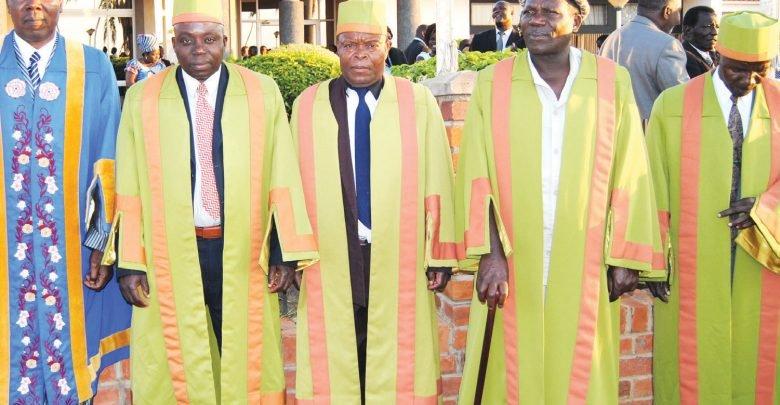Africa-Press – Malawi. Heated discussions by hundreds of concerned Malawians on various social media platforms especially Facebook following a development that both the Reserve Bank of Malawi (RBM) and the Ministry of Local Government are failing to shoulder responsibility on “suspicious” honoraria payouts to various chiefs across the country between December 1 to 22, 2020; and, some have simply concluded that “Malawi is a crime scene.”
A post by renowned social commentator, Stanley Onjezani Kenani, on the issue attracted close to 200 comments in under two hours of posting that the amount RBM transferred to various chiefs was not known and that the Ministry of Local Government, under whose purview the chiefs fall, disowned the payments, saying they did not originate from it.
“The Ministry says RBM is best-placed to explain what the what the basis of those payments was. On its part, RBM says the government is best-placed to explain the payments. Just like that, the money is gone. Our government is the new Father Christmas in town,” wrote Kenani.
While another commentator, Wilson Khembo, said “Malawi is a crime scene.” Zinazi Tikadaleka opined that if it was true that responsible ministers and DCs were not aware of the transactions then the country was headed for serious trouble.
“I hope the Office of President and Cabinet (OPC) or State House know and have explanations. Otherwise, if Chakwera acts shocked and surprised again, then I have one question for him … with all these scandals (including RBM going rogue) within a year, how does he wakeup/sleep and calls /feels himself a State President … of nearly 20 million people?” Tikadaleka wondered.
According to reports, spreadsheets show money transfers from RBM to chiefs with corresponding amounts and their banks between December 1 and December 22, 2020 who include senior chiefs, traditional authorities, sub-traditional authorities, group village headmen and village headmen.
The chiefs: Kalolo, Makanjira, Khongoni, Katuli, Fukamapiri, Ngokwe, Mpando, Inkosi Mzikuobola, Kalembo, Ndindi, Pemba, Mkoola, Kachindamoto, Senior Chief Nyambi and Senior Chief Mbwana got their payments through various commercial banks in the country.
Malawi News reports that, in some of the cases, the payments were not uniform such that a junior traditional leader got an amount for a traditional authority. In other cases, traditional authorities were getting an amount meant for group village headman.
Ministry of Local Government spokesperson, Anjoya Mwanza, failed to explain the disparities in the payments saying since the payments did not originate from them, RBM was better-placed to explain. According to her, chiefs’ payments “are decentralised and are paid by each district council, not local government at Capital Hill.”
But Reserve Bank of Malawi spokeswoman, Onilie Nkuna, said government was better placed to comment on the payments, adding that government related transactions are initiated in the system by government itself and the central bank does not process payments or salaries of beneficiaries.
“Government related transactions including salary payments are initiated in the systems by the Government. Once Government loads in the systems, RBM only conducts the due banking related processes.
“With regard to salary payments, a lump sum is loaded in the system by Government and thereafter RBM processes the lump sum that is transferred to a commercial bank. It is at the commercial bank where the salaries are paid to the ultimate beneficiaries,” she is quoted by local media.
Nyasa Times understands that payment of salaries or honoraria for chiefs and civil servants, begin from the Ministry, Department or Agency and the MDA submits to the Accountant General (AG) request for payment and the AG pushes Treasury for funding.
The revelation comes at a time when RBM is also under spotlight over a K1 trillion transfer it made on June 26, 2020. Executive Director for Centre for Social Accountability and Transparency (CSAT) Willy Kambwandira said these revelations are bruising the image of the Central Bank even further and making Malawians lose confidence in it.
But he said the developments provide an opportunity for government to cleanse the Central Bank. “It is also clear that this has been the trend for some time. However, we believe that the revelations provide an opportunity to government to take decisive actions and reprimand officers that were involved.
“The forensic audit reports at RBM clearly provide names of people suspected to have been involved in clandestine activities, and it is our expectation that people implicated should be brought to justice.
“Our concern is that there is no action, no enforcement of the law and punishment on such revelations,” Kambwandira said.






